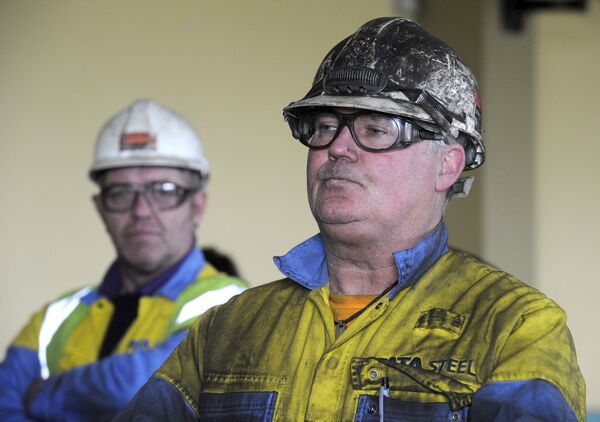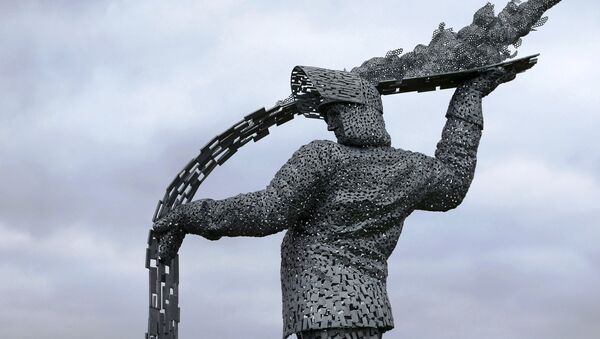Ever since the leadership of Margaret Thatcher in the 1980s, the UK's Conservative Party has been synonymous with private ownership and a firm opposition to nationalized industry.
Indeed, the ideological core of the Conservative Party still clings to Thatcher's view that privatization was "one of the central means of reversing the corrosive and corrupting effects of socialism".
Government rescue package for Tata Steel is an important first step https://t.co/dJHru3g6jP #SaveOurSteel pic.twitter.com/8mC8nKbNXu
— TradesUnionCongress (@The_TUC) April 21, 2016
It is therefore notable that the UK Business Secretary Sajid Javid has announced that the Government is willing to take a 25% stake in the struggling Tata Steel operation, which could potentially save thousands of jobs.

Whilst the part nationalization offer is unexpected, the Government have been keen to stress that the offer will be undertaken on strictly commercial terms, with the state taking no control of the business. A spokesperson for the Prime Minister told members of the press this week:
"If we were to take an extra stake it would be a minority one with the aim of supporting the purchaser in delivering a long-term future for the business, we are certainly not seeking to be controlling the company.
"We will be investing on a commercial basis. We would not see this as nationalization. We would not be seeking to acquire a control in the business. We don't think that nationalization is the right answer."
The UK Government has been criticized for failing to act quickly enough on the Tata Steel crisis, as well as a perceived inaction towards Chinese over-production — or "dumping" — of cheap steel. Many will now look to the newly incentivized Government — given that tax money is now at stake — to tackle Chinese dumping.
Very happy to see that this government has finally made a decent decision: UK state may buy 25% stake in Tata Steel
— Will Black (@WillBlackWriter) April 21, 2016
Critics have suggested that the rescue deal may have been motivated by the upcoming EU Referendum, whereby massive job losses would likely have been seized on by both In and Out campaigns. The decision to part-nationalize the steel industry in Britain still poses risks in terms of the EU Referendum though, in that the move could potentially contravene European state-aid rules.
It's a welcome recognition by govt that they must guarantee the future of UK #steel. Any rescue must protect jobs.
— Frances O'Grady (@FrancesOGrady) April 21, 2016
Tata Steel employs over 10,000 people within the UK, where it is estimated to be losing approximately US$1.4 Million every day. The industry has welcomed the support package.




